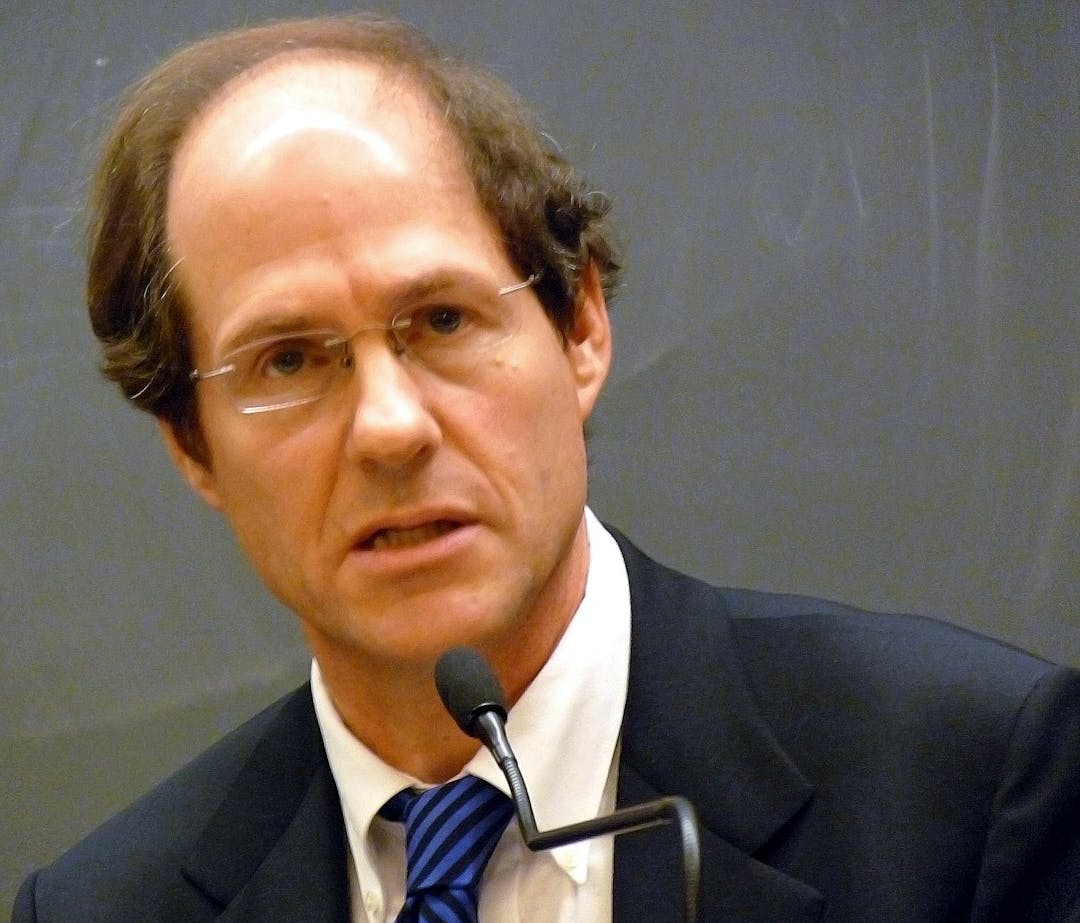Brian Koppelman
Screenwriting advice in six seconds or less
Introduction
Brian Koppelman is an American writer, director, and producer, whose credits include Rounders, Ocean’s Thirteen, Runaway Jury, and Runner Runner. In addition to this, he hosts a weekly podcast, called The Moment, on ESPN radio, in which he interviews celebrities in various creative fields about “the moment” that changed the course of their careers.
Of all his accomplishments, Rounders is arguably his most recognizable. The film has a remarkable legacy; it helped to launch the poker boom of the early 2000s and has generated a cult following in the years since its release. More than that, Rounders serves as a testament to Koppelman’s approach to his craft. This screenplay was Koppelman’s first and was the direct result of his desire to put art out into the world, exemplifying his passion for writing, while the meticulous research that went into its development highlights his dedication and penchant for authenticity. As a whole, the film gives a good sense of who Koppelman is as a writer: a passionate creative mind who is unafraid to take risks.
What unifies every part of my journey is that I always lead with my curiosity, obsession, or fascination.
– Brian Koppelman
On their shoulders
For millennia, great thinkers and scholars have been working to understand the quirks of the human mind. Today, we’re privileged to put their insights to work, helping organizations to reduce bias and create better outcomes.
Innovative ideas
Six Second Screenwriting Lessons – How to improve your writing
In 2013, Koppelman started making six second videos offering up his words of wisdom about writing and posting them on the now defunct platform, Vine. His advice was based on his years of experience working in a creative field and he made these videos with the goal of helping aspiring writers improve their craft. While many other writers have given seminars or written books on writing, most of them focus exclusively on rules and structure. Koppelman, on the other hand, gives advice that encourages writers to pay less mind to the rules, and to instead put their energy into writing what they are passionate about, developing a consistent writing schedule, and being willing to take creative risks. This is a different approach than that which is preached in most classrooms or books on writing craft, which place importance on style and structure. However, Koppelman believes that a draft written freely, driven by the need to tell a story, results in a far more interesting end product than a draft written to appease an audience, written by following a checklist of dos and don’ts.
“When we celebrate risk takers, we’re talking about mountain climbers and cliff divers, but I know creative risk takers are just as brave.”
— Brian Koppelman
The overarching message of Koppelman’s video series is for any aspiring writer to just write, and to do so without obsessing over structure or letting self-doubt stop them. Two examples of Koppelman’s Six Second Screenwriting Lessons are “Calculate less. Don’t try to game the market. Write what you want to write. And drink plenty of coffee”, and “The more rules you’re trying to remember or beats you’re trying to hit, the harder it is to get in a state of flow. Just write”. Koppelman firmly believes that consistency and passion are the keys to improving your writing, and that they will do more for you than reading every book on writing craft ever could.
“There is no secret. Writing is all about hard work, persistence, and discovery. Anyone who says different is selling something.”
— Brian Koppelman in his Six Second Screenwriting Lessons series
Transcendental meditation – Advice for anxiety management
Transcendental meditation (TM) is a form of meditation that involves sitting with one’s eyes closed and silently repeating a personalized mantra over the course of 20 minutes, two times each day.1 The evidence-based benefits of TM include decreased stress and anxiety, improved cardiovascular health, and increased energy and creativity.2 The latter is of particular interest to creative types, like Koppelman, as it has been suggested that the clarity of mind that comes from practicing TM can result in greater innovation.
Koppelman is by no means a pioneer of TM – it was first introduced to Western society in the 1950s by Maharishi Mahesh Yogi3, and is now practiced by people worldwide. However, Koppelman is a staunch proponent of the practice, going so far as to incorporate it into his acclaimed drama series, Billions, of which he is co-creator, showrunner, and executive producer. He and his Billions co-creators, David Levien and Andrew Ross Sorkin, all practice TM, and felt that it was realistic to have their tycoon protagonists practice it as a means of achieving “actualization as a kind of performance enhancement”4.
“Everyday, it’s about building a practice that enables you to try and forget that you’re afraid.”
— Brian Koppelman
This form of meditation, in which you silently repeat a mantra to yourself, is recognized as an effective means for clearing your mind and eliminating distraction. The mantra itself is usually meaningless, with all the focus being placed on the way it sounds. Some training is required to learn how to do TM properly, and your mantra is assigned to you by your teacher upon your initiation5. Koppelman is not the only celebrity to practice TM as a way to reduce stress and foster creativity; the members of The Beatles are arguably the most famous example of such, having taken up this form of meditation in the 1960s6.
While Koppelman did not develop TM, by speaking openly about his practice of it and by incorporating it into his television series, he is playing a role in making it more mainstream. Thanks to him, more people will become aware of it and may be encouraged to try it themselves. This is positive because the benefits of TM are supported both by anecdotal evidence from people like Koppelman and by multiple peer-reviewed studies.
“For me it was a way to control anxiety, and I found that the physical manifestations of anxiety just dissipated by about 85 or 90 percent. So that was a gigantic life change, to not feel a fluttering stomach, to not get a stress headache and things like that.”
— Brian Koppelman on Transcendental Meditation
Historical Biography
Brian Koppelman was born on April 27, 1966 in New York state. He received a degree from Tufts University in Massachusetts, which was, incidentally, the same school attended by the singer Tracy Chapman. Upon hearing Chapman sing, Koppelman put her in touch with his father, who was one of the owners of SBK Publishing, an indie song publisher. The demo she produced with SBK Publishing ultimately got her signed to Elektra Records, through which she released her self-titled album, which included her iconic track, Fast Car.7
“Write what you know’ works, but it’s limiting. Write what fascinates you. Write what you can’t stop thinking about.”
— Brian Koppelman
Fittingly, following his connection with Chapman, Koppelman worked as an Artist and Repertoire (A&R) representative at several record labels, including Elektra.8 However, he is better known for his television and film career, which kicked off in 1997, when he and writing partner, David Levien, wrote the original screenplay for the film Rounders. The two had been friends for quite some time but it wasn’t until the late 1990s that they decided to collaborate on a project. The decision to do so was born out of the desperate urge they shared to write something. Neither of their careers had allowed for such an outlet of creativity up until that point, despite it being something they were both passionate about. From there, the only thing stopping them was the question of what, exactly, to write about. It was only after paying a visit to an underground poker club that it dawned on Koppelman what their screenplay should be about. Rounders offers a glimpse into the world of high-stakes poker, which Koppelman and Levien researched thoroughly, by going to poker clubs and taking note of everything they saw and heard.9 The film, which features Matt Damon and Edward Norton, had a decent run at the box office but had a far more significant cultural impact. Poker was beginning to gain popularity in the early 2000s, and Rounders served to launch it to new heights. It brought the game into the mainstream, and people started to consider it a legitimate form of entertainment. Trips to Las Vegas and Atlantic City became a norm. The way we view poker was changed forever and Rounders, in spite of the mixed reviews it got upon its release, became an enduring cult classic.10
“The time you set aside to create is one of the only things you can control. Luckily it’s also the most important factor in getting things done.”
— Brian Koppelman
It’s always interesting to hear what movies filmmakers hold in high regard. Koppelman has referred to Francis Ford Coppola’s The Godfather: Part II as his favorite movie of all time. In fact, he was a guest on the podcast, The Rewatchables, in the 2019 episode dedicated to that very film. He, alongside the hosts, The Ringer’s Bill Simmons, Sean Fennessey, and Chris Ryan, discussed the film at great lengths, ultimately drawing the conclusion that it is the greatest movie ever made.
Koppelman and Leviens’ friendship and professional relationship continued long past their collaboration on Rounders. They co-directed This is What They Want, a documentary on tennis player Jimmy Connors, for ESPN’s 30 for 30 series, for which they won a Sports Emmy Award.11 More recently, the duo, along with Andrew Ross Sorkin, they created the Showtime series, Billions, which stars Paul Giamatti and Damian Lewis. Airing since 2016, there are currently five seasons of the show. The series follows a hedge fund manager and a US attorney, who is attempting to prosecute the hedge fund manager for his illicit strategies for accumulating wealth.
“There’s no one creative endeavor I’ve tried that hasn’t been met with resistance and rejection at first. The trick is to ignore those things.”
— Brian Koppelman
Published Work
Since 2014, Koppelman has been hosting a weekly podcast called The Moment. In each episode, he interviews a different celebrity guest about a pivotal moment in their life that shaped their career.
Six Second Screenwriting Lessons on Vine
While the popular app is no more, Vine was once all the rage. Koppelman took advantage of the platform’s popularity to share words of wisdom about screenwriting in a series titled “Six Second Screenwriting Lessons”. Vine might be gone, but Koppelman’s advice can still be found in compilation videos on YouTube, as well as on his blog.
Dark City Lights: New York Short Stories (Have a NYC #4)
This fourth installment in the Have a NYC series was helmed by editor and contributor Lawrence Block. Released in 2015, Dark City Lights is an anthology of 23 short stories, all set against the backdrop of New York City. Each story was written by a different author, and Brian Koppelman was one of the contributors. His story is titled “Wednesday is Viktor’s”.
Koppelman was featured on The Ringer’s podcast in an episode discussing, what he considers the greatest movie ever made, The Godfather: Part II. This episode was made as part of The Ringer’s The Rewatchables series, in which the hosts talk about the movies they can’t seem to stop watching. In the two and a half hour podcast, they take a deep dive into The Godfather: Part II. It’s a must-listen for any fan of the film – which, according to Koppelman, should be everyone.
“Going All In: An Oral History of Rounders”
In celebration of the 20-year anniversary of the release of the cult classic, Rounders, Alan Siegel of The Ringer brought us an interview with Koppelmen, Levien, and other key players in the film’s development. This peek behind the scenes offers fascinating insight for fans and film buffs alike.
About the Author
The Decision Lab
The Decision Lab is a Canadian think-tank dedicated to democratizing behavioral science through research and analysis. We apply behavioral science to create social good in the public and private sectors.





